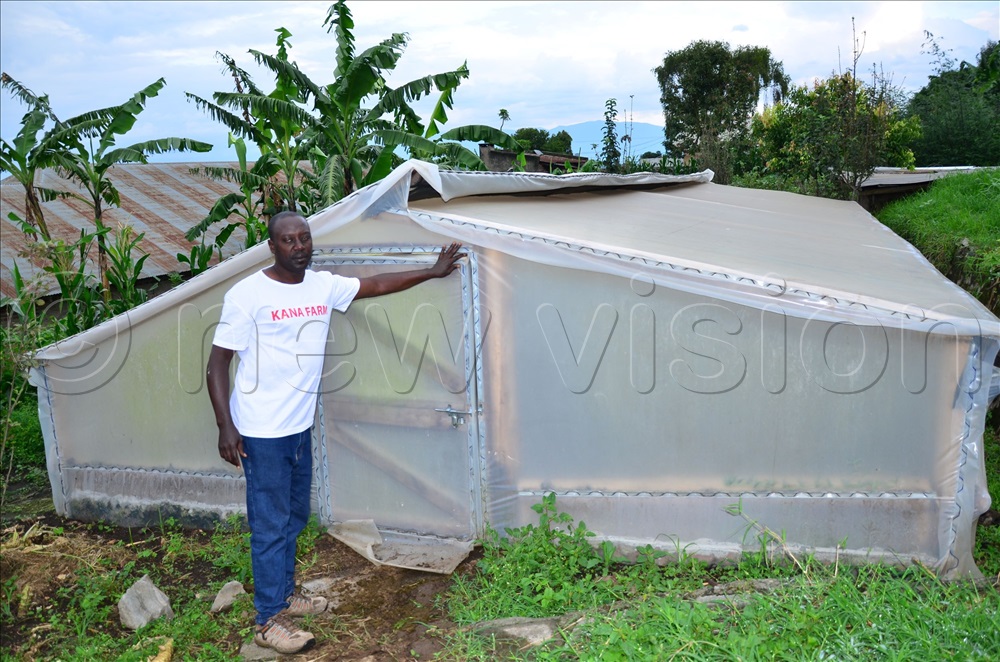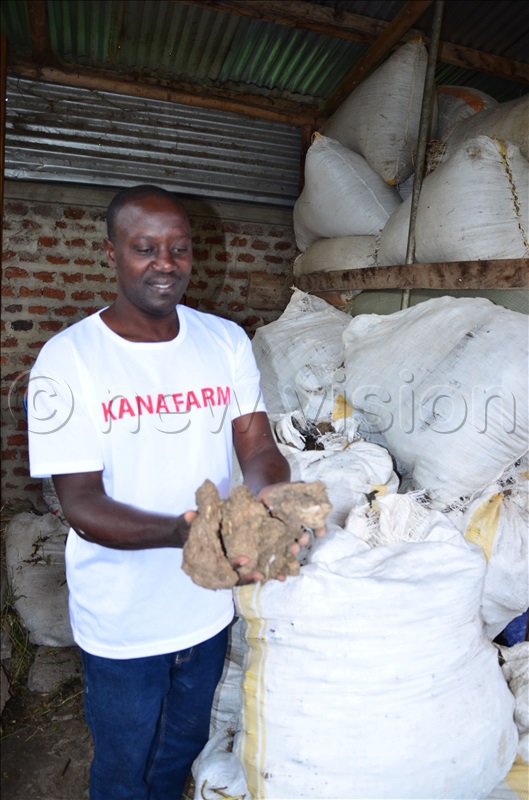Richard Nyakaana, a mixed farmer based in Rwengaju village, Fort Portal, believes that no resource on a farm should go to waste, including cow dung.
At Kana farm, he has developed a systematic and technical approach to adding value to cow dung, making it beneficial to both his dairy and poultry operations.
“After cleaning the dairy units, we collect the fresh cow dung and take it through a drying process in the waste dryer,” Nyakaana explains.

“We use a waste dryer that removes moisture content and reduces the volume. Once dried, the dung is easier to store and handle.”
The dried dung is then carefully crushed using a mechanical grinder. This step breaks it down into fine particles, making it suitable for mixing with other feed components.
“We blend it with maize bran, and other ingredients to make cost-effective and protein-rich poultry feed,” he says.
Nyakaana emphasises that the manure is processed under hygienic conditions, ensuring it is fully dried to eliminate pathogens.

“We don’t feed it directly. It’s treated and mixed in ratios approved by veterinary officers,” he adds.
Besides using it in feeds, the processed cow dung is also bagged and sold as dry organic manure to other farmers.
“Some prefer it loose, others want it pelleted or mixed with compost for garden use,” he says.
This integrated approach can allow farmers to cut feeding costs, earn from by-products, and improve soil fertility.
“Adding value to cow dung is about thinking beyond disposal, it’s about seeing an opportunity in every output from the farm,” he concludes.





